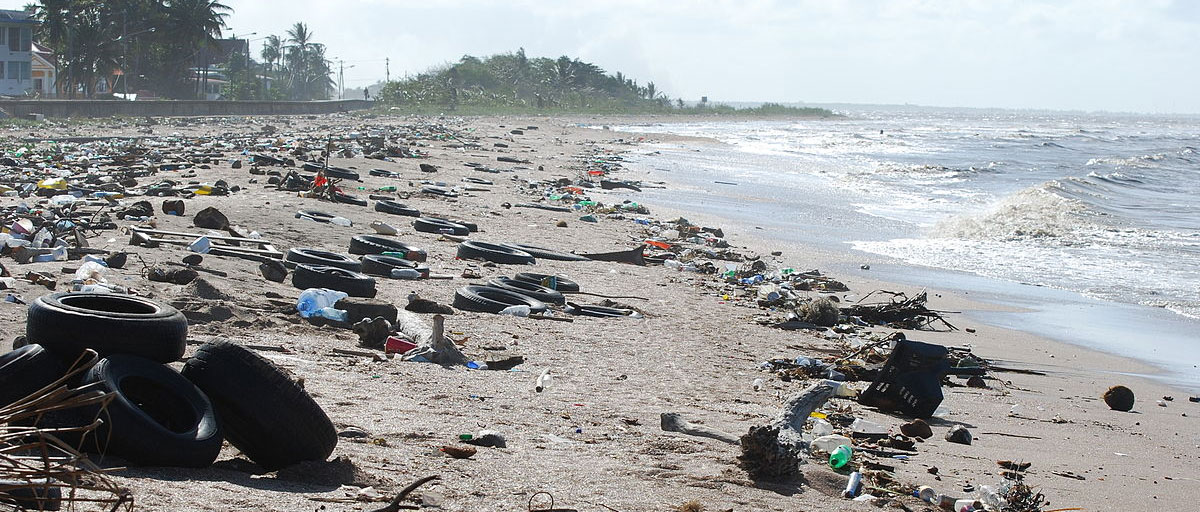
An Ambio article looks at how legal, political, and economic structures in society are contributing to ocean acidification and how society has responded to its impacts. Photo: N. Ryrholm/Azote
Bildtext får vara max två rader text. Hela texten ska högerjusteras om den bara ska innehålla fotobyline! Photo: B. Christensen/Azote
OCEAN ACIDIFICATION
A deep dive into societal causes and responses to ocean acidification
While we know that ocean acidification is a problem, we know less about how society is driving this environmental change, and how we can respond to it
- Review article in Ambio looks at societal causes of, and societal responses to, ocean acidification
- Authors examine market and governance failures, as well as adaptation and mitigation
- Review concludes with a list of key research areas that need to be addressed with respect to ocean acidification
The ocean is one of our greatest carbon sinks. It removes excess carbon dioxide from the atmosphere, though at the cost of making the ocean more acidic. While we know that ocean acidification is a problem, we know less about how society is driving this environmental change, and how we can respond to it.
In an Ambio review article, centre researchers Anne-Sophie Crépin, Max Troell, Victor Galaz, and colleagues address the societal causes of, and responses to, ocean acidification.
“This interdisciplinary review targets the societal aspects of ocean acidification; primarily, legal, political, and economic,” explains the main author Sverker Jagers.
To do this, the researchers outline three questions that guide their review:
(1) What are the primary causes of anthropogenic ocean acidification from a social science perspective?
(2) How can society and politics respond to ocean acidification?
(3) What are the major knowledge gaps and research needs in the social sciences with regard to the future study of ocean acidification?
Human contribution to ocean acidification
The authors highlight two mechanisms at play when it comes to causes of ocean acidification: market failures and governance failures.
With market failures, the authors stress that there is a major gap in scientific economic research around ocean acidification.
While the economic literature on market failures is extensive, the results devoted specifically to ocean acidification are rare in this discipline. A search for key words ‘‘ocean acidification’’ in the ECONLIT database returned only 18 publications, most of them focusing on impacts rather than causes, with a few exceptions.
The authors outline four likely types of market failures related to ocean acidification:
(1) negative externalities, the difficulty to account for cost of global CO2 emissions on oceans
(2) the lack of information on ocean acidification impact, and how it makes decision making difficult
(3) the oceans as a global public good require global cooperation in decision making
(4) ocean acidification involves both slow and fast processes, making it difficult to determine if an ecosystem shift, or regime shift, will occur.
When there are market failures, governing a resource is a challenge. Galaz notes, “Several actors and international institutions act in this problem domain, where poor political, administrative, and other institutional arrangements, results in slow progress.” The authors also contribute short-term thinking from politicians, and a lack of effective policy tools as major human-driven causes of ocean acidification.
The global extent of ocean acidification, its complex social–ecological dynamics involving potential tipping points, the clear role of anthropogenic CO2 emissions to worsen it, the large uncertainties associated with most of its dimensions, and the potentially very large impacts, all together speak for a precautionary approach to address ocean acidification
Anne-Sophie Crépin, co-author
Society in action
When it comes responses to ocean acidification, the authors highlight a number of legal tools that Sweden and the EU have implemented that combat CO2 emissions, and thus ocean acidification.
Jagers points out, “Although not directed towards ocean acidification specifically, several international legal regimes addressing the direct and indirect sources of ocean acidification are already in place. Global strategies for CO2 mitigation arise from the UNFCCC and subsequent instruments, including the Kyoto Protocol and the recent Paris Agreement. Despite increasing knowledge about ocean acidification, the global climate regime contains no provisions explicitly aimed at or related to ocean acidification.”
The authors highlight the importance of having ocean acidification specific policy tools including legal measures to influence behavior.
Concerning the latter, the authors look at both mitigation and adaptation strategies to ocean acidification. They suggest that mitigation can be accomplished by changing behavior thanks to policy tools that are:
regulatory, through economic incentives, such as taxes;
market-based, such as making alternative, fossil fuel-free initiatives more attractive; or
informative, which communicates the problem and encourages voluntary action.
Where mitigation strategies aim to address the root of ocean acidification causes, adaptation strategies are more of a way to deal with ocean acidifications impact.
“Adaptation does not target the causes of the problem but rather aims to maintain social well-being in spite of ocean acidification,” Troell explains. “Adaptation usually requires less coordination effort than global mitigation policies, and those efforts are typically located at the local and regional level where relevant national institutions are usually already in place.”
Mitigation is a necessity, but adaptation plays an important role for those who have already been impacted by ocean acidification’s effects. For example, disadvantaged communities that need help adapting to their new reality through education, investments, or other interventions.
Bridging the knowledge gaps
To address the societal causes of ocean acidification, the authors highlight a number of key research areas. Some of these include: a better understanding of the policy tools and governance structures; public knowledge; ecosystem tipping points; as well as other important topics.
This massive, complex topic requires action, but also precaution.
Crépin concludes, “The global extent of ocean acidification, its complex social–ecological dynamics involving potential tipping points, the clear role of anthropogenic CO2 emissions to worsen it, the large uncertainties associated with most of its dimensions, and the potentially very large impacts, all together speak for a precautionary approach to address ocean acidification.”
Jagers, S.C., Matti, S., Crépin, A.S., Langlet, D., Havenhand, J.N., Troell, M., Filipsson, H.L., Galaz, V.R. and Anderson, L.G., 2018. Societal causes of, and responses to, ocean acidification. Ambio, pp.1-15.
Anne-Sophie Crépin researches the interplay between economic incentives, ecosystem regime shifts, policy and human behavior.
Max Troell is a researcher at the Beijer Institute and an associate professor researching about sustainability issues related to aquatic ecosystems and seafood.
Victor Galaz is deputy director and associate professor whose work focuses on financial systems, and their connection to large-scale environmental change with global non-linear climate repercussions.









